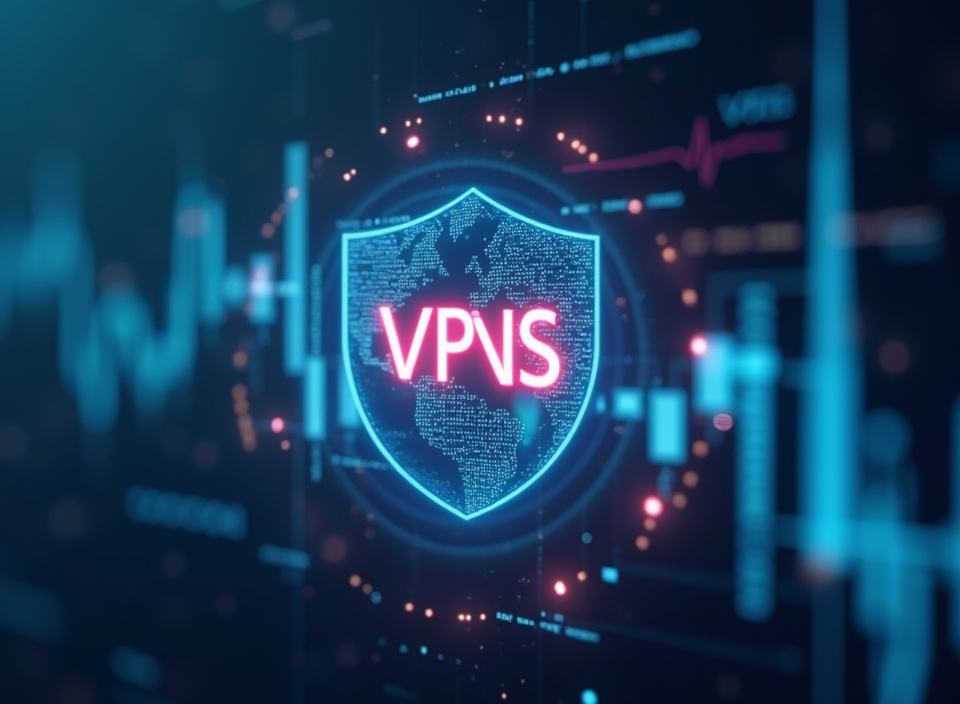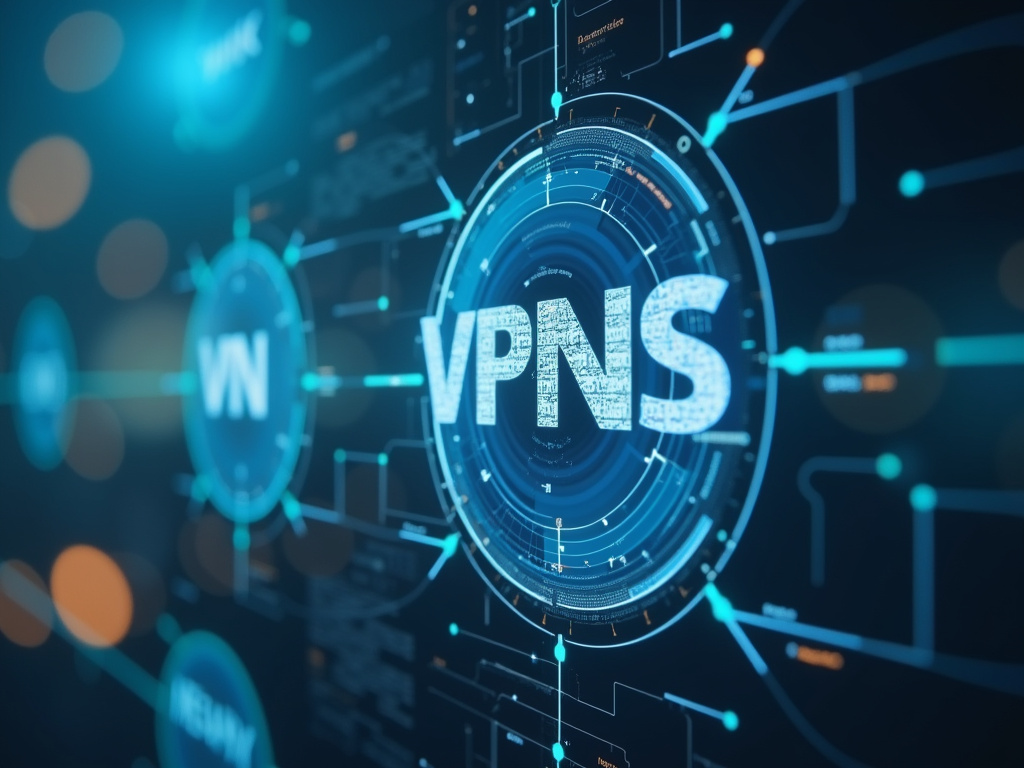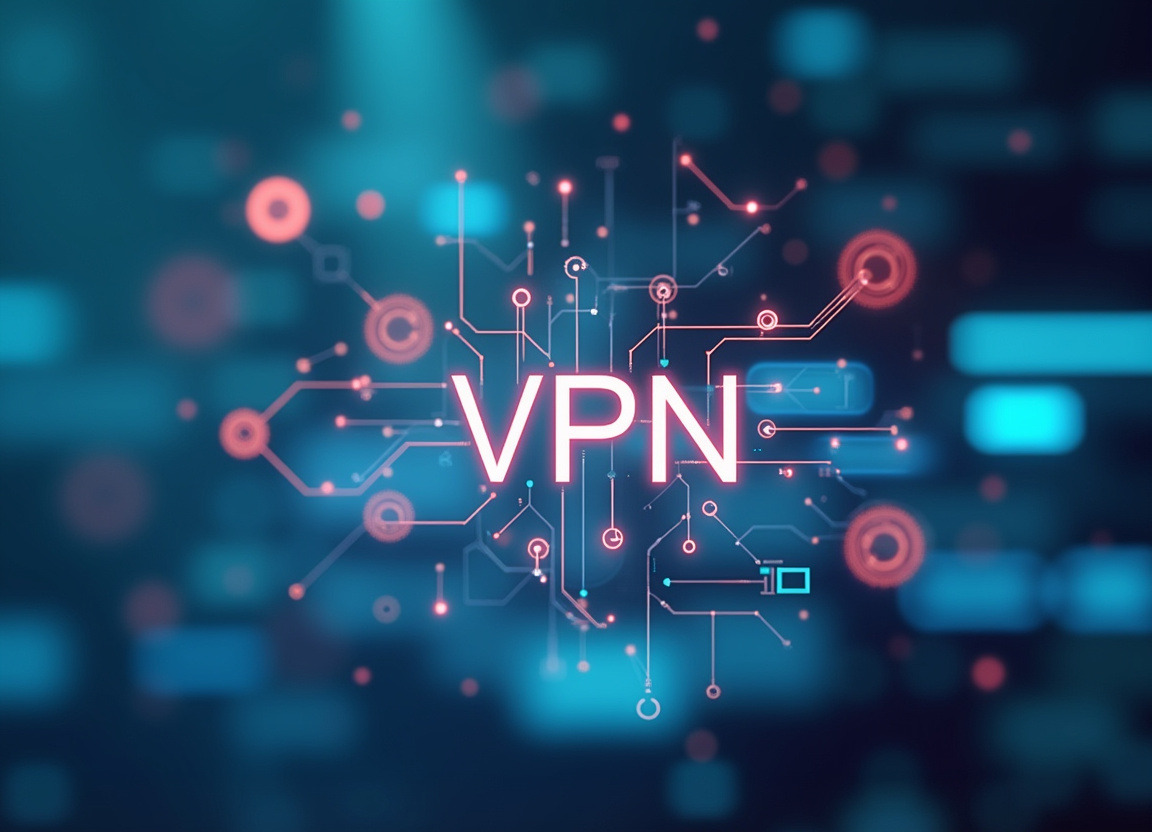VPNs for Public Health Campaigns: Securing Confidential Data

Table of Contents
In an era increasingly defined by digital interactions, public health campaigns are paramount for societal well-being. These critical initiatives are often driven by government entities, non-profit organizations, and academic research institutions. Their primary goal involves disseminating vital health information, promoting preventative measures, and managing public health crises effectively.
The triumph of these campaigns depends not only on strategic communication and widespread reach but also, and perhaps more importantly, on uncompromising data protection and confidentiality security. The inherent nature of most public health campaigns involves dealing with sensitive personal information. This includes highly confidential medical records, detailed demographic profiles, behavioral data, and potentially groundbreaking research findings.
If this data is compromised, it can lead to severe and extensive consequences. These range from individual privacy breaches and identity theft to the erosion of public trust in health institutions and potentially disastrous setbacks for critical health initiatives. Therefore, the core challenge is to carefully balance the widespread distribution of crucial information necessary for improving public health with a rigorous commitment to protecting the confidential data entrusted to campaign organizers.
Virtual Private Networks (VPNs) emerge as a crucial tool in striking this sensitive balance, offering a secure and reliable method for data protection. A strategically implemented public health VPN acts as a secure and encrypted tunnel, effectively shielding sensitive data from unauthorized access as it journeys across the internet. It achieves this by masking the user's IP address, thereby anonymously concealing their online activity and drastically reducing the possibility of malicious actors intercepting or tracking sensitive data transmissions.
This functionality is especially critical in public health campaigns that often require real-time data sharing among various stakeholders – including healthcare providers, research scientists, government agencies, and international organizations – all of whom may be located across disparate geographical locations. The VPN encrypts all transmitted data, securing email exchanges containing confidential client information, sensitive documentation, and file transfers containing patient records. Further, it protects access to secure online databases, ensuring that critical health data remains shielded from unauthorized eyes.
This comprehensive encryption protocol ensures confidentiality security at every point of data transfer, thwarting potential interception attempts and preventing unauthorized access to confidential information. The comprehensive data protection offered by VPNs goes far beyond mere encryption. These systems often encompass a holistic suite of security features tailored to enhance user safety and ensure the persistent protection of sensitive data.
For instance, many VPNs employ built-in ‘kill switches.’ In the event of an unexpected VPN connection drop, these switches automatically terminate all active internet connections, preventing potential data leaks that could occur if the device reverts to its default, unprotected network. The effectiveness of VPNs for public health further relies on stringent ‘no-logs’ policies. This means that reputable VPN providers do not track, collect, or store user activity data.
This commitment to minimizing retained user information adds an extra layer of privacy, reinforcing the security provided by encryption protocols. To the public health sector, this level of multi-layered security is not merely a luxury or a desirable feature: it is a core requirement. The potential implications and ramifications associated with data breaches occurring within public health organizations are immense.
The damage includes the loss of public trust, the disruption of research and health initiatives, and possible emotional and physical harm to vulnerable populations. Strategic communication is the very foundation of successful public health campaigns. The ability to distribute vital information widely, and simultaneously offer effective dialogue with the target population is paramount to reaching the desired outcomes and improving health outcomes across the board.
Therefore, the backbone of the campaign will be hampered if confidentiality security is compromised. A constant concern with ongoing communication being exposed can potentially hamper open and honest discussions amongst key stakeholders. The security of the right technology will enable the sharing of sensitive information and ultimately elevate the success of the entire campaign.
Implementing a robust public health VPN strategy demands more than simply choosing a random service; it requires careful planning, comprehensive risk assessment, and the meticulous selection of VPN services that precisely align with unique campaign needs. This process starts with a thorough evaluation of numerous factors, beginning with the strength of the encryption algorithms used by different VPN providers. Advanced Encryption Standard (AES) with 256-bit keys is generally considered the gold standard, providing virtually impenetrable security.
Consideration must also be given to security protocols offered; OpenVPN and WireGuard are often favored for their robustness and open-source nature, allowing for continual scrutiny and improvement by the security community. Selecting a VPN entails also scrutiny of its operational jurisdiction. Different countries operate under varying data retention regulations.
Choosing a VPN provider residing in a jurisdiction with strong privacy laws offers an additional level of protection, limiting government access to user data. The provider’s past performance safeguarding user privacy is also highly relevant. Thorough research into the provider's history of data breaches, transparency reports, and adherence to privacy policies helps in making an informed decision.
However, implementing suitable technology is insufficient. Organizations need to create clear, detailed, and easily understood policies for VPN use. These guidelines should delineate who is authorized to use the VPN, the types of data that demand protection, and concrete steps staff must take in the event of a potential security breach.
User training and awareness are vital. Regular training sessions and engaging awareness programs must be conducted to educate staff on the central role of data protection and best practices in using the VPN correctly. These programs should cover topics such as identifying phishing attempts, creating strong passwords, and recognizing signs of malware infection.
Besides, the VPN should be incorporated seamlessly into the existing IT ecosystem through user-friendly configuration. To prevent user resistance and improve overall security, the VPN should automatically connect anytime users access sensitive resources or engage in communication with external stakeholders. Enabling multi-factor authentication supplies an additional layer of security.
By requiring users to verify their identity via multiple channels (e.g., password plus a code sent to their mobile device), multi-factor authentication significantly reduces the risk of unauthorized access. Another essential advantage of a VPN for health campaigns is its ability to access geo-restricted resources. This is a crucial aspect for international health campaigns or those needing access to resources specific to different regions as access to research repositories, databases, or government portals may have geographical restrictions.
VPNs allow for the circumvention of these restrictions, granting seamless access to essential information regardless of location. The process of implementing a VPN should incorporate constant monitoring and consistent maintenance. The network infrastructure should be consistently monitored for potential weaknesses and overall performance.
Software updates should be deployed immediately to patch any identified vulnerabilities. To effectively manage any possible incidents, there should be incident response plans to address potential breaches. They should contain guidelines for identifying the breach, to stop the damage, and inform impacted parties.
It’s important to be aware of the limitations of VPNs. Even though there is significant security to consider, there could be chances of breaches through malware. In this case, one should implement antivirus software, systems for the firewall and intrusion detections.
It’s always important that a reputatable VPN provider who holds a provable record is implementing secure user privacy. Free VPN providers should be avoided in this case, since they have hidden cost, this cause malware injection or user data logging. The integration of VPNs within organizations related to public health are important to secure data and give a successful outcome.
This gives healthy behaviour and combats disinformation, and also protects data. Preserving the access and integrity of data is not only technological, it has important ethical implications.
The ethical considerations involved in using 'public health VPN' during campaigns is a topic that demands careful reflection. While these networks offer a robust mechanism for enhancing data privacy and security, they concurrently introduce a set of ethical dilemmas that necessitate proactive management. One prominent consideration is the ethical importance of transparency.
Public health campaigns should communicate openly about their utilization of VPNs. Explaining why these tools are crucial for safeguarding sensitive information helps build trust with stakeholders, assuring them that measures for 'data protection' are being handled responsibly. This honest approach can mitigate potential public anxieties about data handling practices and reinforce the campaign's commitment to respecting individual privacy.
Furthermore, transparency should extend to disclosing the specific types of data being protected by the VPN, the security protocols in place, and the VPN provider's privacy policy. This level of openness empowers individuals to make informed decisions about their participation in the campaign and provides reassurance that their data is not being misused. Another ethical dimension involves the potential for 'VPN for health' campaigns to circumvent regulations or ethical restrictions on data collection or usage.
Public health campaigns must ensure that their use of VPNs adheres strictly to all applicable laws and regulations. Compliance includes data protection laws like GDPR or HIPAA (depending on location and data sensitivity) and other ethical guidelines. Additionally, VPNs should not be used to sidestep informed consent procedures or collect data without proper authorization.
Regular audits of data handling practices are crucial to verify compliance with legal and ethical standards. These audits should assess whether data is being collected, stored, and used in accordance with the stated purposes of the campaign and whether appropriate safeguards are in place to prevent misuse or unauthorized access. It is essential to establish clear guidelines on data retention policies, specifying the length of time that data will be stored and the procedures for securely disposing of data when it is no longer needed.
These policies should also address the rights of individuals to access, correct, or delete their personal data. A crucial aspect of ethical VPN usage is to minimize the amount of data collected. Campaigns should only collect data that is strictly necessary for achieving their stated objectives and avoid collecting data that is irrelevant or intrusive.
Anonymization and pseudonymization techniques can be employed to further protect privacy, such as removing direct identifiers from data sets and replacing them with codes or pseudonyms. Data aggregation can also be used to combine individual data points into summary statistics, thereby reducing the risk of identifying individual participants. Ethical considerations also extend to the selection of VPN providers.
It is essential to choose providers with strong privacy policies and a proven track record of protecting user data. Thorough due diligence should be conducted to assess the provider's security practices, data retention policies, and transparency reports. Free VPN services should be avoided, as they often lack adequate security measures and may monetize user data through invasive advertising or data sharing practices.
Moreover, 'strategic communication' must incorporate clear and accessible information about how the 'confidentiality security' of data is maintained throughout the campaign. Campaign messaging should emphasize the importance of data privacy and security and explain the measures being taken to protect personal information. This communication should be tailored to the target audience and presented in a language that is easy to understand.
Finally, public health campaigns should establish a mechanism for addressing individuals' concerns or complaints about data handling practices. This mechanism should provide a clear avenue for individuals to report suspected privacy violations and receive prompt and impartial responses. An independent ombudsperson or ethics committee can be appointed to review complaints and ensure that they are handled fairly.
By proactively addressing these ethical considerations, public health campaigns can demonstrate their commitment to responsible data handling and build trust with the communities they serve.
Implementing 'VPN for health' initiatives in large public health organizations presents unique scalability and management considerations. Successfully deploying and maintaining a 'public health VPN' across a diverse workforce requires a carefully planned strategy that addresses the specific needs and challenges of a large-scale environment. One key consideration is selecting a VPN solution that can scale to accommodate a large number of concurrent users without compromising performance.
The VPN infrastructure must be designed to handle peak usage times and potential surges in demand, such as during public health emergencies. Load balancing and distributed server infrastructure can help ensure that the VPN remains responsive and accessible to all users, regardless of location or network conditions. Centrally managing the VPN infrastructure is essential for maintaining consistent security and enforcing organizational policies.
A centralized management console allows administrators to monitor VPN usage, configure security settings, and deploy software updates to all connected devices. This centralized approach simplifies administration, reduces the risk of misconfiguration, and ensures that all users are protected by the same security measures. Integrating the 'VPN for health' with existing identity management systems streamlines user authentication and simplifies the onboarding process for new employees.
Single sign-on (SSO) integration allows users to access the VPN using their existing credentials, reducing the need to remember multiple usernames and passwords. This integration also enables administrators to enforce strong password policies and multi-factor authentication across all connected devices. Automating VPN provisioning and deprovisioning is crucial for managing user access efficiently.
When new employees join the organization, their VPN access should be provisioned automatically as part of the onboarding process. Similarly, when employees leave the organization, their VPN access should be revoked immediately to prevent unauthorized access. Automated provisioning and deprovisioning reduce the administrative burden on IT staff and ensure that user access is always up-to-date.
Monitoring VPN usage patterns can provide valuable insights into potential security threats and policy violations. Analyzing VPN logs can help identify unusual activity, such as excessive data transfers or access attempts from suspicious locations. This information can be used to proactively investigate potential security breaches and take corrective action.
Providing adequate technical support and training is essential for ensuring that users can effectively use the VPN and troubleshoot any issues that may arise. A dedicated help desk should be available to assist users with VPN-related questions and problems. Training materials should be developed to educate users on how to connect to the VPN, configure security settings, and protect their data.
Regularly auditing the VPN infrastructure is crucial for identifying security vulnerabilities and ensuring compliance with organizational policies. Security audits should assess the VPN configuration, access controls, and logging practices. The results of these audits should be used to develop and implement remediation plans to address any identified weaknesses.
Planning for disaster recovery and business continuity is essential for ensuring that the VPN remains available during unexpected events, such as natural disasters or cyberattacks. A disaster recovery plan should outline the steps to be taken to restore VPN services in the event of a disruption. This plan should include procedures for backing up VPN configuration data, replicating VPN servers to a secondary location, and testing the failover process.
Communicating effectively with users about VPN-related changes and updates is crucial for minimizing confusion and ensuring user adoption. Clear and concise communication should be provided through multiple channels, such as email, intranet postings, and training sessions. These communications should explain the reasons for the changes, the steps that users need to take, and the benefits of the changes.
By carefully addressing these scalability and management considerations, public health organizations can effectively deploy and maintain a 'public health VPN' that provides robust 'data protection' for a large and diverse workforce. The VPN infrastructure must be designed to handle peak usage times and potential surges in demand as 'strategic communication 'increases the outreach. Choosing the right 'confidentiality security' , ensures a smooth user experience while securing sensitive information.
Looking towards the future, the role of 'public health VPN' solutions will undoubtedly evolve due to emerging technologies and shifting cybersecurity landscapes. Anticipating these changes and proactively adapting 'data protection' strategies is crucial for maintaining the confidentiality and integrity of public health information. One key trend to watch is the increasing adoption of cloud-based services in the public health sector.
As more organizations migrate their data and applications to the cloud, the need for secure VPN connections to protect data in transit becomes even more critical. VPN solutions that are specifically designed for cloud environments, offering features such as integration with cloud identity management systems and support for cloud-native security protocols, will become increasingly important. Another important trend is the rise of mobile devices in the workplace.
Public health workers are increasingly using smartphones and tablets to access sensitive information and communicate with colleagues and patients. Securing these mobile devices with VPNs is essential for preventing data breaches and protecting patient privacy. VPN solutions that offer mobile device management (MDM) capabilities, such as remote wiping and password enforcement, can further enhance the security of mobile devices used in public health settings.
The emergence of new cybersecurity threats, such as ransomware and advanced persistent threats (APTs), will also drive the evolution of 'public health VPN' solutions. VPNs will need to incorporate advanced threat detection and prevention capabilities to protect against these sophisticated attacks. Features such as intrusion detection systems (IDS), intrusion prevention systems (IPS), and sandboxing can help identify and block malicious traffic before it reaches the internal network.
The increasing emphasis on data privacy regulations, such as GDPR and CCPA, will also shape the future of 'public health VPN' solutions. Organizations will need to ensure that their VPN implementations comply with these regulations and that they provide adequate protection for personal data. VPN solutions that offer features such as data loss prevention (DLP) and encryption can help organizations meet their data privacy obligations.
Artificial intelligence (AI) and machine learning (ML) are expected to play an increasing role in cybersecurity, including VPN solutions. AI and ML can be used to automate threat detection, identify anomalous behavior, and improve VPN performance. For example, AI-powered VPNs can automatically detect and block malicious traffic, optimize VPN server selection based on network conditions, and adapt security policies based on user behavior.
The development of quantum-resistant encryption algorithms is another important trend to watch. Quantum computers have the potential to break existing encryption algorithms, which could compromise the 'confidentiality security' of VPN connections. Developing and deploying quantum-resistant encryption algorithms will be essential for ensuring the long-term security of VPNs.
Collaboration among public health organizations, cybersecurity vendors, and government agencies will be crucial for addressing the evolving cybersecurity challenges. Sharing threat intelligence, developing best practices, and coordinating incident response efforts can help strengthen the overall security posture of the public health sector. By anticipating these future trends and proactively adapting their 'data protection' strategies, public health organizations can ensure that their 'public health VPN' continue to provide robust security and protect sensitive information in an ever-changing threat landscape.
Strategic planning to protect the organization’s 'strategic communication' is important when considering future implementations and updates. Considering mobile devices with increased frequency is critical for successful 'VPN for health 'applications .
Stay Updated
Get the latest VPN news, tips, and exclusive deals to your inbox.




